- Features
- Color chart
- Termination types
- Models
- Sensors
- Leads & Sleeves
- Documents
Features
At Volton, we manufacture thermocouples and RTD sensors (Resistance Temperature Detectors) according to your specifications, ensuring accurate and reliable temperature monitoring in industrial, commercial, or specialized environments.
Thermocouples are robust, responsive, and suitable for extreme conditions, while RTDs stand out for their high accuracy and long-term stability.
Our thermocouples are custom-made to meet your needs, available in different types (J, K, T, E) and customizable with a wide selection of sleeves, insulators, and termination types.
We also offer RTD sensors in various configurations and accuracy classes, with multiple material and connection choices to fit your installations and technical requirements.
Types of Thermocouples & RTD Sensors
Each type of thermocouple and RTD meets specific requirements in terms of temperature range, accuracy, and environment: find the one that best fits your application.
-
Type K :
Made of Chromel and Alumel, Type K covers a wide range from -200°C to 1260°C, making it a versatile and cost-effective option for general industrial use, such as furnaces and boilers. -
Type J :
Composed of Iron and Constantan, Type J is suitable for mid-range temperatures (-40°C to 760°C) and works well in dry or inert environments, often used in food processing or older equipment. -
Type T :
Built with Copper and Constantan, Type T is ideal for low-temperature applications (-200°C to 370°C) due to its stability, commonly used in cryogenics and refrigeration. -
Type E :
Combining Chromel and Constantan, Type E offers high sensitivity across -200°C to 870°C, making it perfect for precise measurements in laboratories or research settings. -
RTD Pt100 (100 Ohms) :
Known for its high accuracy and stability, the Pt100 RTD sensor is ideal for industrial applications requiring reliable monitoring within the -70°C to 500°C range. -
RTD Pt1000 (1000 Ohms) :
Offering similar precision to the Pt100, the Pt1000 RTD is more resistant to electrical noise and better suited for long-distance measurement systems.
Wire types
Choosing the right thermocouple wire depends on temperature range, mechanical durability, and environmental conditions. Here's an overview of the most used types:
-
PVC (-40 to 105°C / -40 to 220°F)
Flexible and economical; best for dry or low-demand environments. -
Teflon (-267 to 260°C / -450 to 500°F)
Excellent thermal and chemical resistance; ideal for harsh or corrosive environments. -
Fiberglass (-73 to 482°C / -100 to 900°F)
Highly resistant to heat; perfect for tough industrial conditions. -
Kapton (-269 to 315°C / -167 to 600°F)
Very thin and heat-resistant; great for tight spaces and vacuum environments.
Color chart
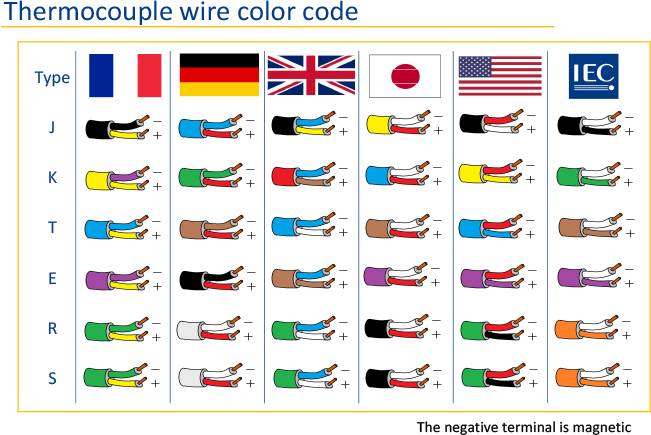
Termination types
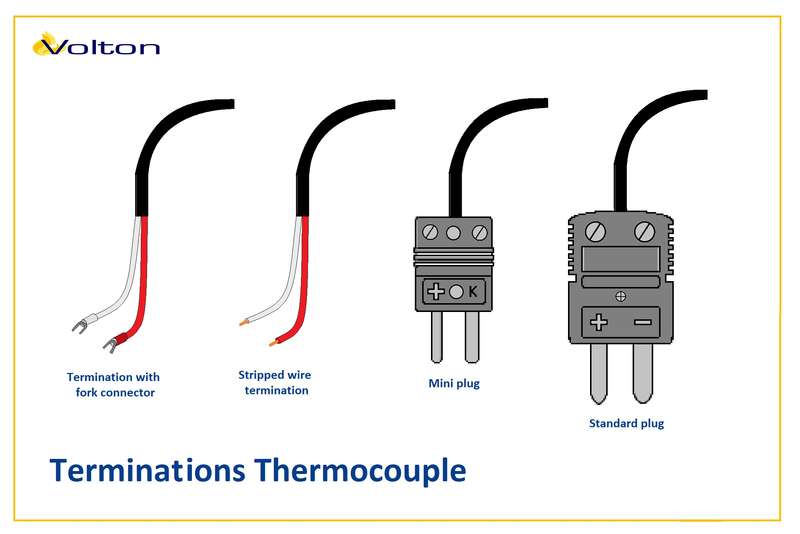
Models
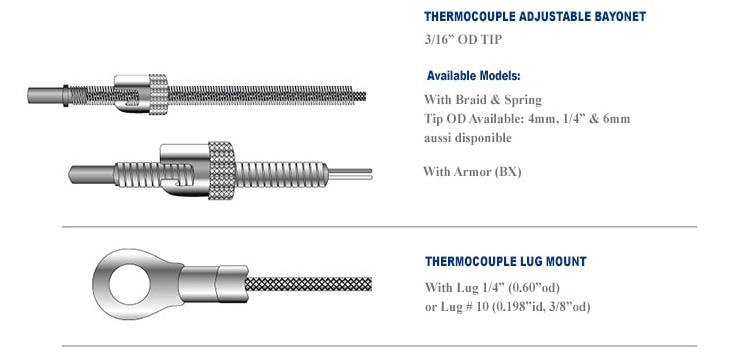
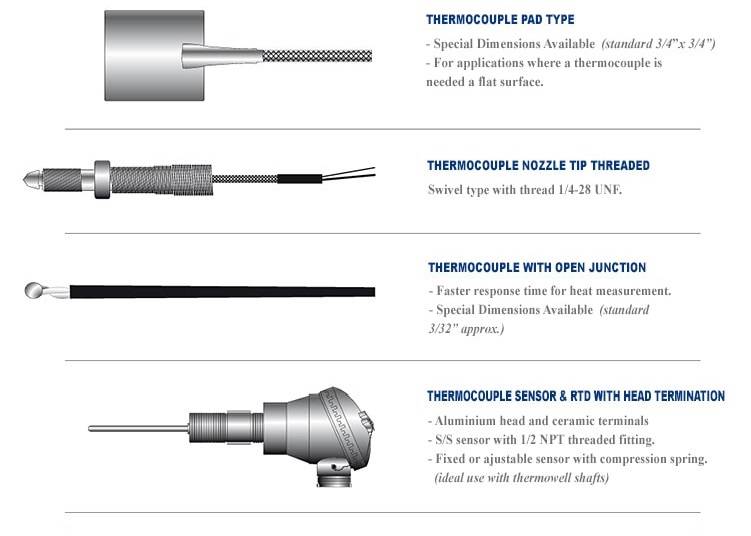
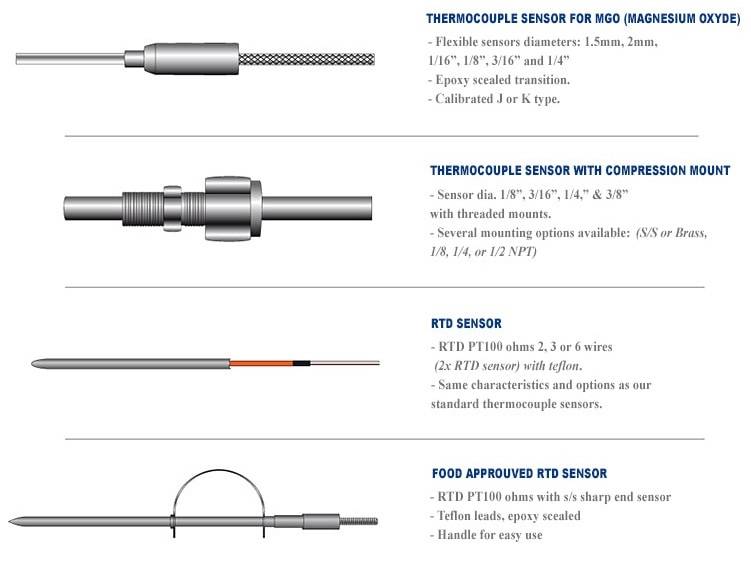
Sensors
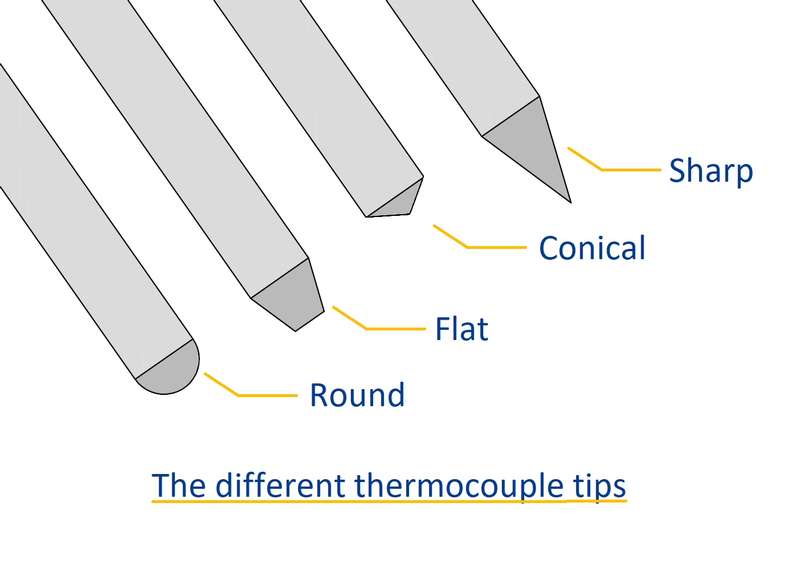
Leads & Sleeves
Sleeves
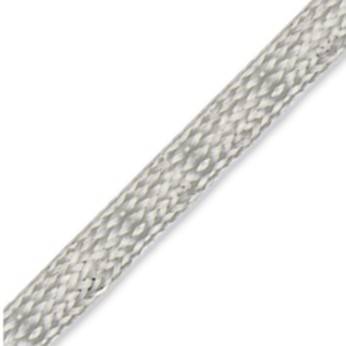 |
Stainless steel braid (SSB)
|
 |
Armor cable (BX) Flexible armor cable that provides rugged protection for the leads. |
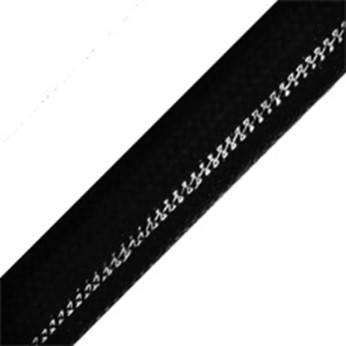 |
Fiberglass
|
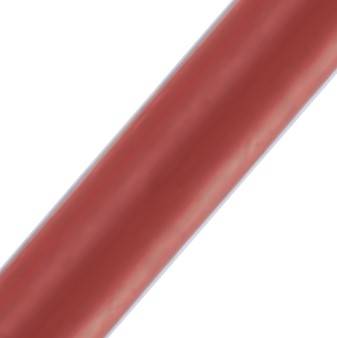 |
Silicone
|
Leads
![]() Moisture resistant
Moisture resistant
|
Fiberglass (Standard)
|
Teflon
|
|
PVC
|
Kapton
|
 Skip site navigation
Skip site navigation





















